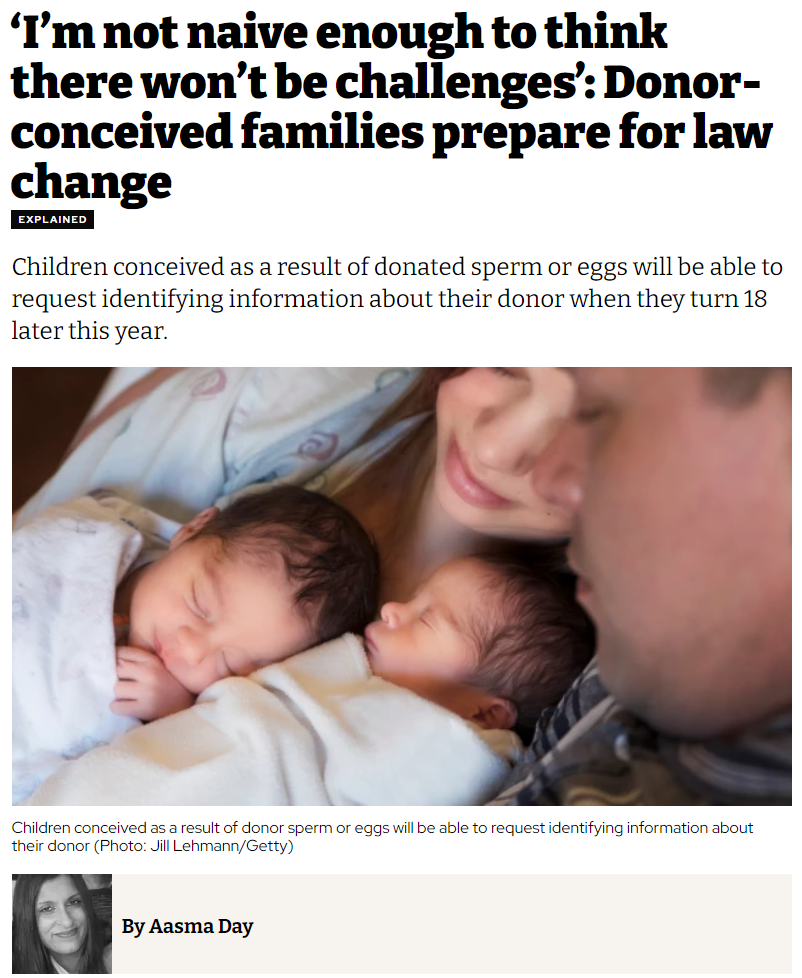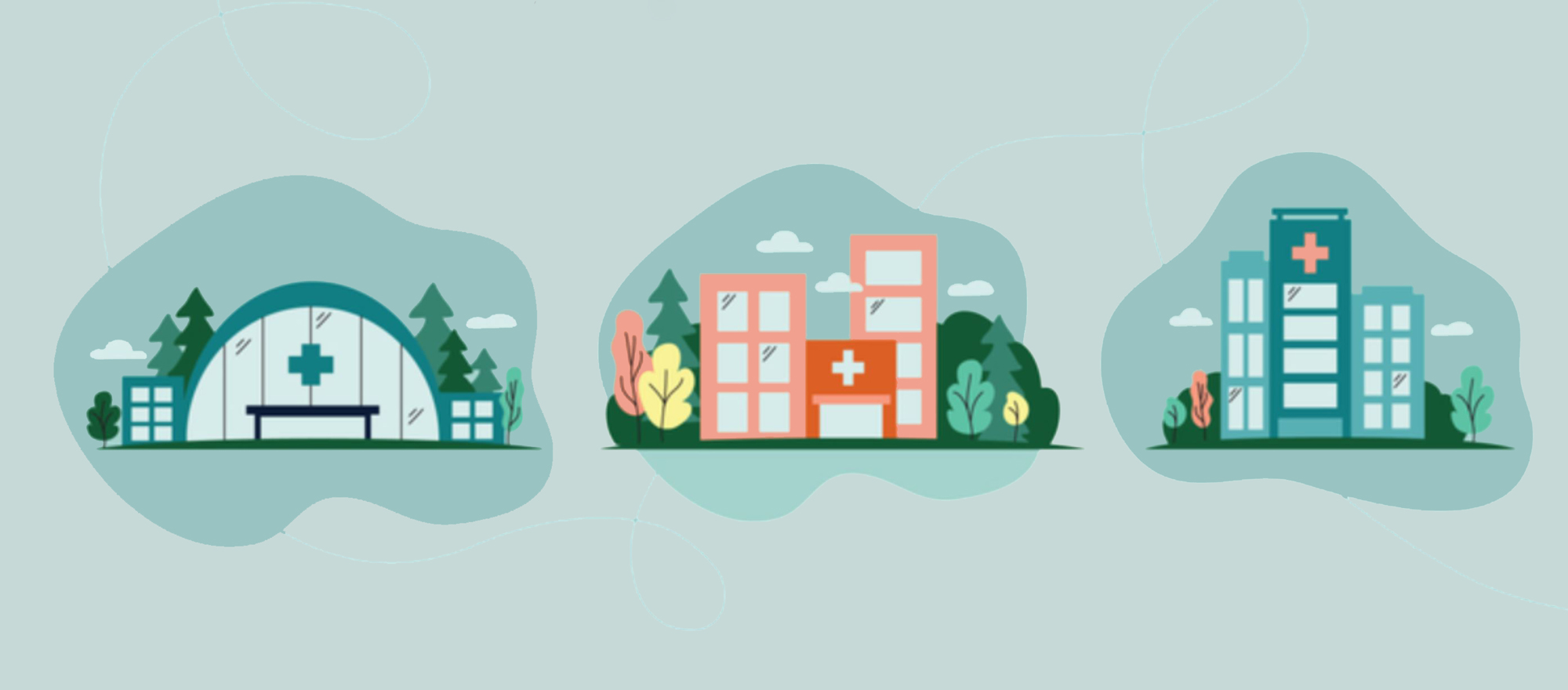Donor-conceived people reaching 18 this year will be the first to benefit from a 2005 legal change that will allow them to gain access to more identifiable donor information.
The most recent national figures for donor conception in the UK from the Human Fertilisation and Embryology Authority (HFEA) reported that donor conception accounted for more than 4,100 births in 2019, which means that 1 in 170 of all births, and 1 in 6 births using IVF, involved either egg or sperm donation. This is a significant rise over recent years, with numbers almost tripling since 2006.
When regulations on anonymity were introduced in 2005, they stated that once they turn 18, most donor-conceived people in the UK will be able to apply to the HFEA to discover identifying information about their donors.
Given the timing of the law change, the first donor-conceived people to be eligible to do this will turn 18 towards the end of 2023. This has inevitably led to newspaper articles discussing the issues surrounding anonymous and known donations. We summarise those here and signpost where you can go for further information.

The Guardian
The Guardian has welcomed the move to more openness around donor conception. The article’s author, Zeynep Gurtin, highlights the positive benefits of donor conception as a way to build a family and acknowledges that with such an increase in the numbers of donor-conceived children, there is an opportunity to reexamine the ethical issues that this raises.
Opinions about donor conception have shifted massively over the past decades, and with organisations such as the Donor Conception Network (DCN) advocating a move to greater openness and disclosure, received wisdom is now to tell and tell early, for the benefit of the children born from donor eggs and sperm.
All of this is leading to dispel any remaining stigma around donor conception, and although being able to discover donor details will inevitably lead to new situations as these 18-year-olds decide what to do with their access to information, it also has the potential to result in a more open and accepting situation for everyone involved.
Zeynep Gurtin, the article’s author, worked at the London Women’s Clinic for two years as a Senior Research Associate London Women’s Clinic.

inews
The inews article discusses how donor families are preparing themselves for the law changes that become relevant towards the end of this year. It reports the change as being a ‘momentous moment’ for donor-conceived people and their families.
The article’s author, Aasma Day, welcomes the change as an opportunity for donor-conceived people to be able to find out more about their genetic heritage, which can be very important to know if not necessarily to act on.
The author explains that not every donor-conceived person that turns 18 later this year will be able to access further donor information, as the legal changes apply only to people who were conceived with eggs or sperm from a donor who registered after 2005.
She points out that at the time of the change, there was an amount of sperm in storage, and people conceived with that sperm will not qualify to access the same information. However, over time, it will be the majority who will be able to do so.
There is a possibility that people who were conceived before the law change will also be able to find out more about their donors, as donors were given the opportunity to re-register after the rules change in order to become identifiable.
The article examines the implications for donor-conceived people in detail and outlines the benefits of a more open culture for everyone involved.
What happens next?
The HFEA service designed to support people wanting to find out more about their egg or sperm donor is called ‘Opening the Register’, which is a donor-conceived register listing all fertility treatments taken out in UK-registered clinics since 1993.
The sperm or egg donor-conceived adults will firstly be given non-identifiable information about a donor, which might include their physical characteristics and any goodwill message they may have left at the time of donation.
The HFEA recommend counselling for all parties involved before they will share identifiable information about their donor, who will have been forewarned and offered counselling by the HFEA.
Managing expectations and offering support is critical to anyone who is embarking on a journey to discover more about their genetic beginnings. By far the majority of all people involved and affected by this are in agreement that donor-conceived people have the opportunity to explore their genetic identity if that becomes important to them at any stage of their lives.


